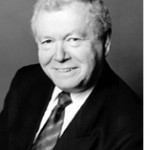By Rabbi Dow Marmur

JERUSALEM — The cynical abuse of the Temple Mount by Israelis and Palestinians seems to be the principal reason (or perhaps excuse) for the present unrest.
Avi Sagi, professor at Bar Ilan University and Senior Fellow at the Shalom Hartman Institute, published an article the other day in Ha’aretz under the provocative title, “The Removal of God from the Temple Mount,” in which he argues that once the Israeli flag was placed there in 1967, God’s sovereignty on this most holy site was replaced by human power. Most Jews who now clamour to “pray” there have very non-religious agendas. Religious, particularly very Orthodox, Jews know that the place is out of bounds for them until Messianic times. It belongs to God, not to humans.
Palestinians have their own anomalies. For example, on Wednesday the Arab members of Knesset threaten to defy the government’s ban and ascend the mountain. The most vociferous advocates of this performance are members of the anti-religious Balad party who have no time for Islam other than when it serves their political grandstanding.
Though the tensions and the unrest around the Temple Mount have now spread to other parts of the city, indeed the country, and inspired today’s Arab “day of rage” and its tragic casualties, and though Jerusalem is still a divided city despite its formal “reunification,” there’s a lot of togetherness. Here’re a few examples.
- In every hospital you’ll see Arab doctors, nurses and patients no less than Jews. Differences don’t seem to exist here.
- Many of Jerusalem’s bus, light rail and taxi drivers – and passengers – are Arabs. Unless you probe you may not know who is Jewish and who isn’t.
- If you walk along the Mammilla Mall that ends at the Jaffa Gate you’ll see many Arab shoppers and merchants. The same is true of most other shopping malls in the city.
- What was once the railway line that divided the German Colony from Bakka is now an attractive park, again frequented by both Arabs and Jews as are other parks.
- Similar things can be said about many cities in Israel.
- I watched an interview with a very senior police officer in the country who is an Arab. There’re Arabs in other high places, albeit not as many as there should be.
None of the above suggests that there’re no differences between Jews and Arabs in Israel in general and Jerusalem in particular. They exist; many are economic and social. There’re also distinct neighbourhoods, even though ultra-nationalist Jews, supported by money from abroad, are doing their utmost to encroach on some Arab areas causing trouble and hardship in the guise of patriotism and fidelity to Jewish tradition.
Therefore, it would be too unrealistic to believe that, given another couple of decades, full integration will become a reality. Arabs who hope for a Jewish minority in an Arab State of Palestine or Jews who hope that they’ll remain in the majority in the Jewish State of Israel one way or the other may indeed believe that co-existence can lead to a one-state solution in place of the present two-state mantra. Realists know better.
Yet they too, I surmise, see that the more confidence building measures can be put in place the more bearable it’ll be to live here for all concerned whatever the final outcome. We hope and pray that the present wave of unrest will soon come to an end and both the Palestinian and Israeli governments will help sanity to prevail.
*
Rabbi Marmur, spiritual leader emeritus of Holy Blossom Temple in Toronto, now resides in Israel. He may be contacted via dow.marmur@sdjewishworld.com